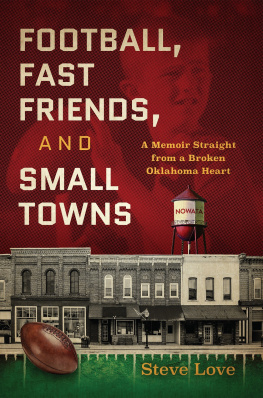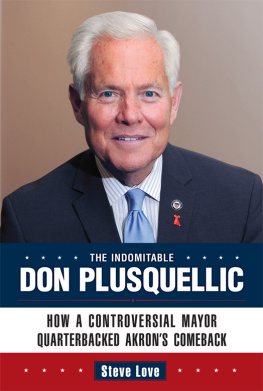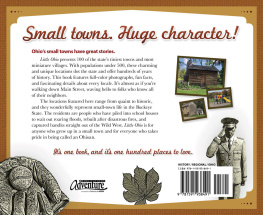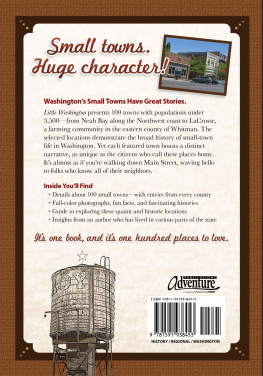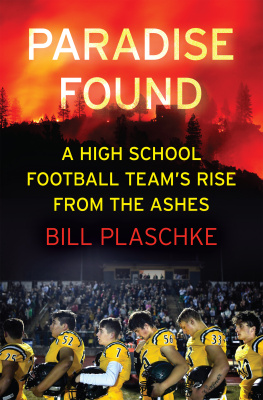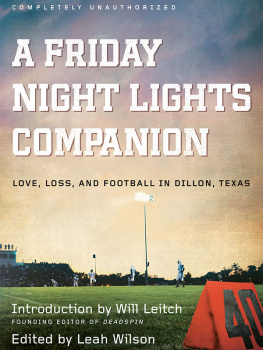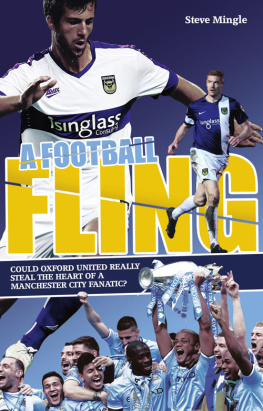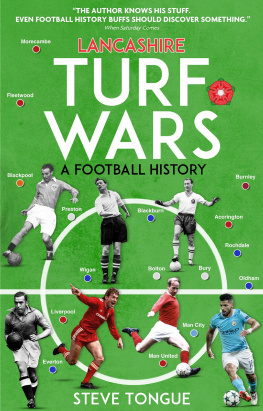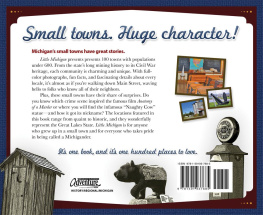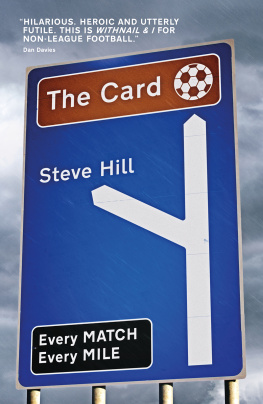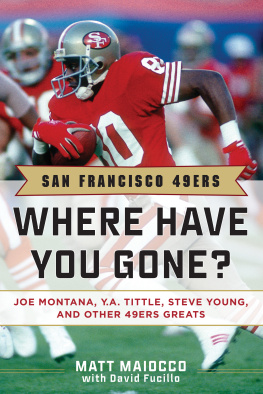
Copyrighted Material
Football, Fast Friends, and Small Towns: A Memoir Straight from a Broken Oklahoma Heart
Copyright 2020 by Steve Love. All Rights Reserved.
No part of this publication may be reproduced, stored in a retrieval system or transmitted, in any form or by any meanselectronic, mechanical, photocopying, recording or otherwisewithout prior written permission from the publisher, except for the inclusion of brief quotations in a review.
For information about this title or to order other books and/or electronic media, contact the publisher:
Hawk Bookworks
P.O. Box 400
Uniontown, OH 44685
stevelovewriter.com
Library of Congress Control Number: 2020912646
ISBNs:
978-1-7351227-2-4 (hardcover)
978-1-7351227-0-0 (softcover)
978-1-7351227-1-7 (eBook)
Printed in the United States of America
Cover and Interior design: 1106 Design
For KB Berry, Bucky Buck, and Charles Duggerteammates and friendsand to all the others in the Class of 1964 who allowed me to feel a part of Nowata even after I wasnt.
A LSO BY S TEVE L OVE

The Indomitable Don Plusquellic (2016)
How a Controversial Mayor Quarterbacked Akrons Comeback
The Holden Arboretum (2002)
Stan Hywet Hall and Gardens (2000)
Wheels of Fortune (1999, David Giffels, co-author)
The Story of Rubber in Akron
The Golden Dream (1997, Gerry Faust and Steve Love)
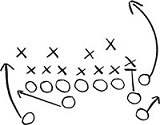
INTRODUCTION
T his work began not as memoir but as a construct of essays intended to reveal quarterback attributes beyond throwing and running, qualities too often underappreciated or unrecognized. It was to have included quarterbacks of all stripes, high school to professional. That book must wait. At the fountainhead of this trickle of exceptionalism stood, in my mind, a quarterback whose name not even the most ardent and knowledgeable football fan is likely to have knownKenneth Beryl Berry. That is a loss, one I hoped to rectify. KB was my high school quarterback, the youngest brother of another Berry quarterback who had inspired all us boys.
As I laid the groundwork, the backstory to introduce KB Berry, one of the many quarterbacks I have known in the ways people come to know themas failed player, admirer of the game, and, in my case, sports columnist and excavator of the forgottenthe story morphed into more than the drama of KB, quarterback. It took on a life of its own, one about a small town in Oklahoma, a town like many in which people love football and boys who play the game that can create common cause and give purpose to a community it would not otherwise have. It became KBs story and that of Steve Davis, another small-town Oklahoman who quarterbacked the University of Oklahoma to national championships. It became mine as well.
The other quarterbacks with equally admirable qualities and stories might understand this turn of events. Many of their lives were not straight lines to glory, either. As I assayed the way forward, one word at a time, some sure, others as shaky as one of the newborn calves my veterinarian father let me help him birth when I was a boy, one phrase kept recurring in my mind. Originally a Walt Whitman poem, O Captain! My Captain! it was touchingly and tellingly reprised in a 1989 Academy Award-winning movie, Dead Poets Society. An unorthodox English teacher (John Keating, played by Robin Williams) encouraged his students to seize the daycarpe diemand make your lives extraordinary. It did not work out well for everyone.
Such mixed outcomes are not limited to movies. Sometimes a person seizes the day, and other times the day gets the best of him. It happens everywhere, in small towns and large, even to the most exceptional among usour quarterbacks, captain, my captain. That became the story, KBs and mine, and this book evolved into something unplanned, taking a trajectory that follows the paths we took to arrive at the place we have ended up.
My hope is to return to the other quarterbacks to whom this book might be considered an unintended prequel. As you will discover, however, I have been known to fumble, stumble, and bumble, which is not unlike a go-to descriptionrumblin, bumblin, stumblinthe great Chris Berman once used to explain quarterback and other football follies to devotees of the ESPN Sunday NFL Countdown program he anchored. Boomer had a way with words and a delivery that seized listeners. KB Berry, quarterback and captain, had some Boomer in him.
Some of it resulted from our hometown, Nowata, Oklahoma, which I must admit to seeing through rose-colored glasses fogged by time. Those who remained in Nowata or returned later see more clearly. Bucky Buck, another teammate and friend, once confessed todays Nowata could make him sad. Nowata is not exactly a rose garden, he said. But this is home. The home we knew, the home that is, for good and bad.
Even diminished, hometowns continue to be places that have a hold on our hearts, weaker, perhaps, yet strong enough to remain unbroken. Home is where the heart is, I heard a wise man say, Bucky reminded me, wisely. That will not change. Sacred memories and the hope of a homecoming sustain us. As Bucky put it, Hope is the typology of heaven. And... Nowata.

A SMALL-TOWN BACKYARD QUARTERBACK
W hen Mama blew her whistle, it meant Game Over. Forget who had the ball, what down it was, or which team was leading. Mamas whistle was final. No ifs, ands, or Hail Marys. Her whistle, a 1950s means of communication, predated smartphones by decades; it did not waste words. Even if this whistle-blower was not an official, everyone understood Mama ruled our backyard games, as much Oklahoma small-town authority figure as any football coach.
Mama knew football as surely as she knew when dinner was ready and that her little quarterback had better head for home as if it were the end zone.
The players could hear Mamas metal or plastic whistle a block away, which is where kids in my Nowata neighborhood usually played. Nowata, a town of four thousand or so, is in the northeast corner of the state, twenty miles south of Coffeyville, Kansas, where Mama grew up and the Dalton Gang went down. If I did not want to end up like the Daltonsor worse, on the wrong end of Daddys razor stropI had to grab my football and leg it home. We usually played with my football, which explains why I was the quarterback. I would have left the ball for others to finish the game, but, when someone left, it often created uneven sides. Game over.
Seventy-plus years later, I still hear the shrill echo of Mamas whistle, a nostalgic blast more welcome in memory than it was before our game had been settled. I cannot remember how old I was when our neighborhood games began. It seems as if we were born playing football, basketball, or baseballespecially footballand as often as not in yards at the sides of our modest houses as in those in back of the small lots. When I visit Nowata nowMama and Daddy are buried thereit seems as if the yards have shrunk even further. Once, there might have been enough room to play in my yard if my fathers animal hospital and my mothers prodigious plantingsflowers, shrubs, treeshad not eaten up so much of what could have been a small football field. Hedges and the street marked out-of-bounds. With three or four to a team, we did not require enormous spaces. We ourselves were on the small side.
Next page
